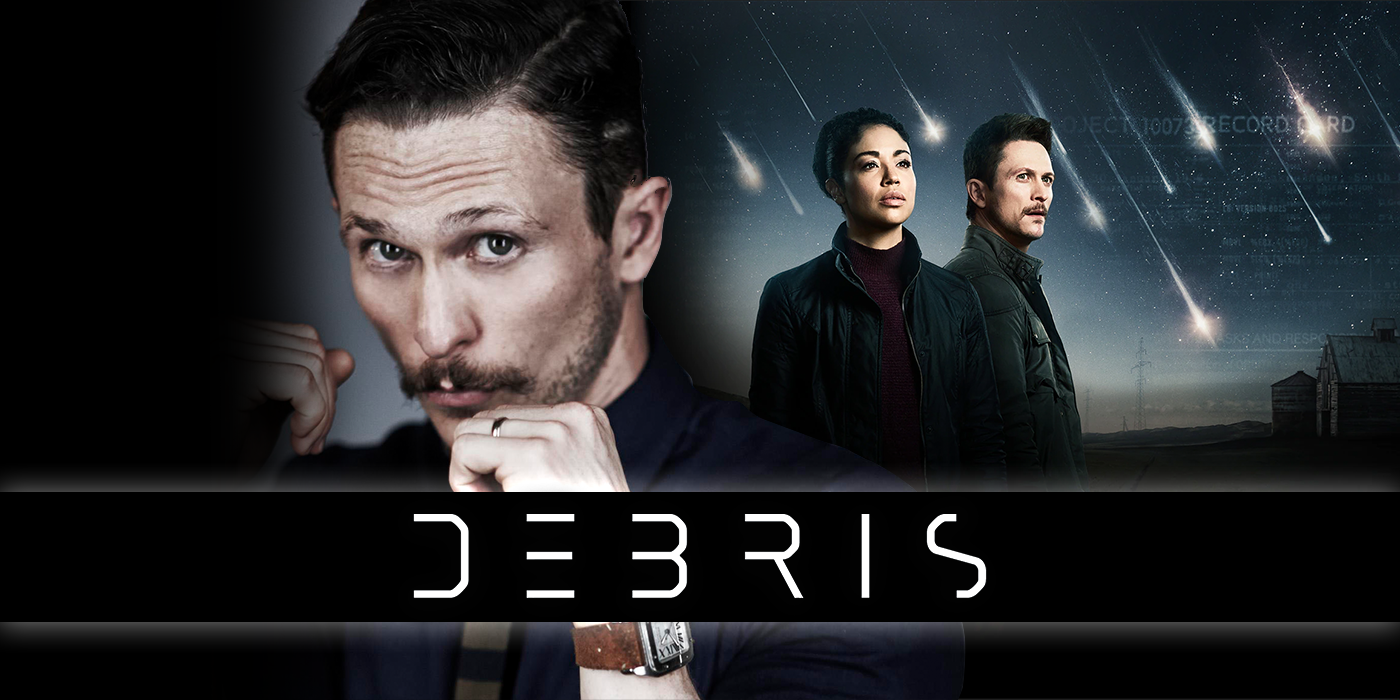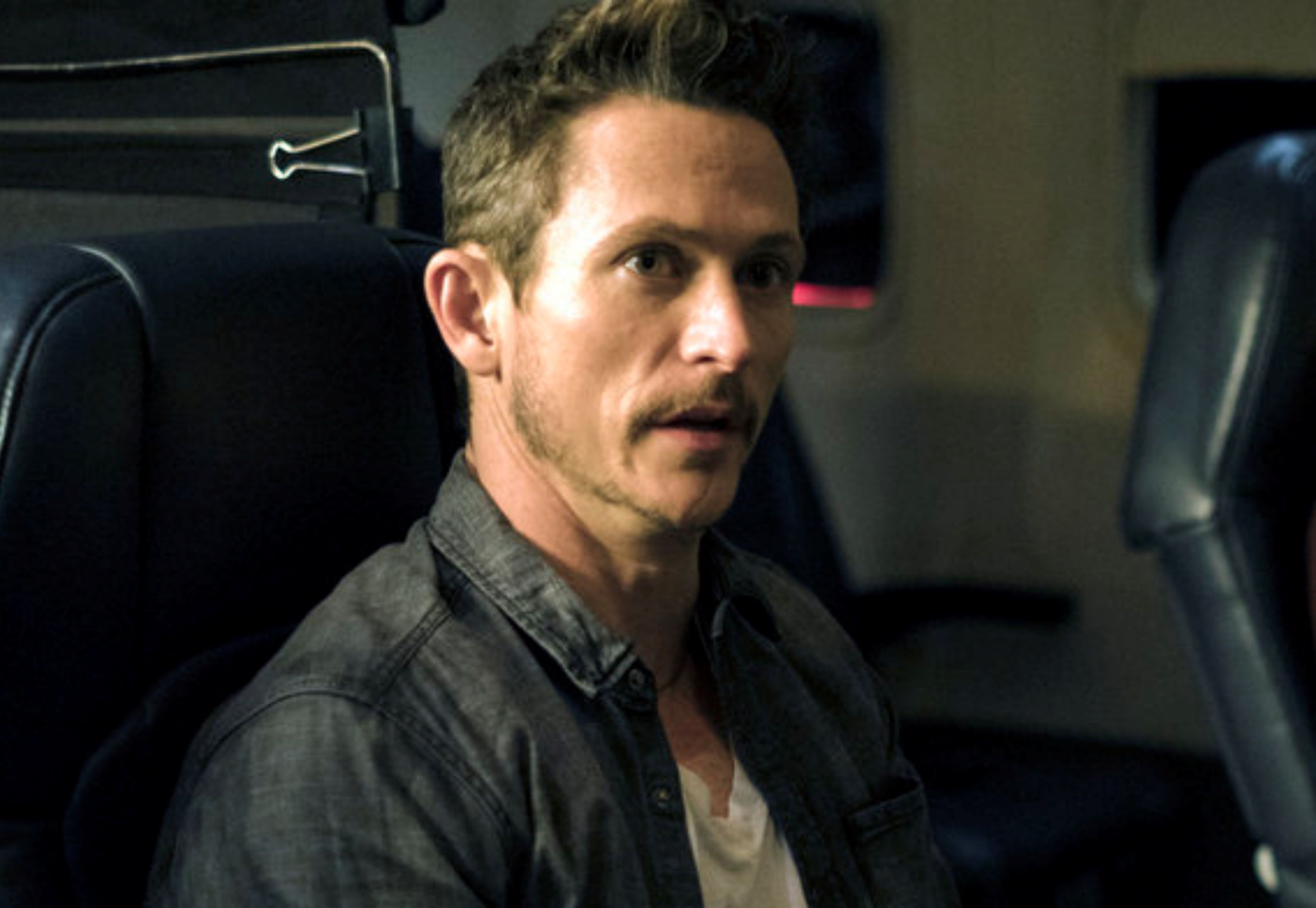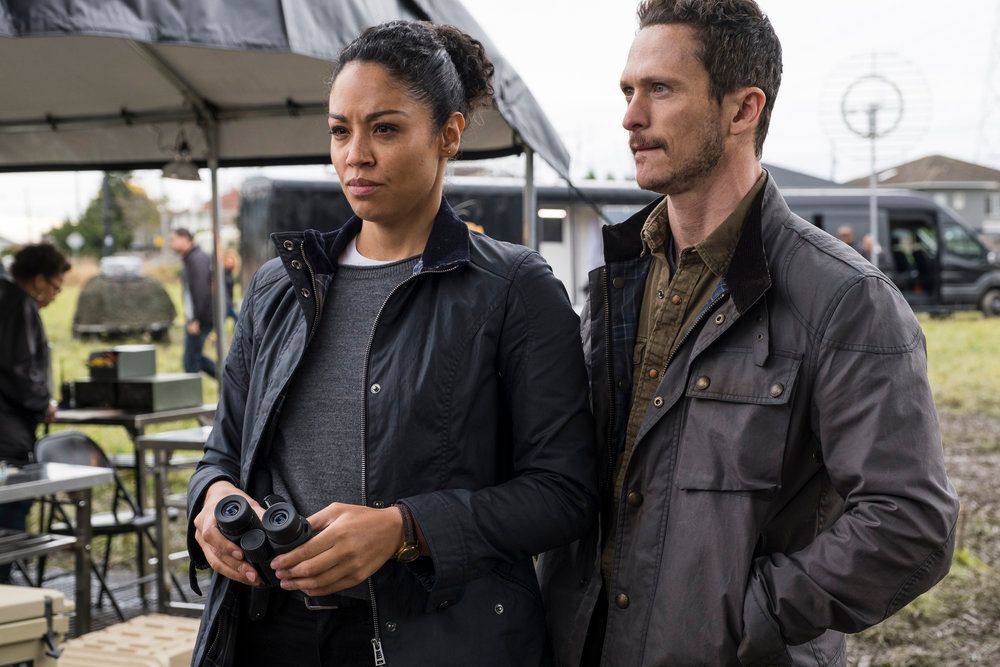From creator J.H. Wyman (Fringe, Almost Human), the NBC series Debris follows two agents – Bryan Beneventi (Jonathan Tucker), an American who’s seen too much, and Finola Jones (Riann Steele), a Brit who’s still trying to find her footing – that are tasked with tracking down the scattered wreckage from a destroyed alien spacecraft, as it reveals itself across the Western Hemisphere. The pieces don’t exactly follow the laws of physics, and their mere existence is a mystery that the world is definitely not ready for.
During this 1-on-1 phone interview with Collider, Tucker talked about wanting to do this project to work with show creator J.H. Wyman, why he’s not comfortable with just being comfortable, opening himself up to find the moments that aren’t in the words of the script, the partner dynamic, exploring the alien mythology, and whether he’s ever considered directing.
Collider: I’m intrigued by where things could be headed in this series, and I’m on board with the storytelling of Joel Wyman.
JONATHAN TUCKER: I’m doing this because I wanted to work with Joel. I wanted to actually spend some days with my wife and our two young kids. It’s been complicated, in terms of timing and shooting locations. This was not something that, on paper, was a huge confirmation for me, simply because I really didn’t open myself up to the opportunity. So, I said, “Let me go have this meeting with Joel.” The moment I sat down, I don’t know I think we were three minutes into talking, when I felt like, “This is the kind of person I wanna be working with.” With the kids, I’m so aware of how fast time goes by. At the same time, we do have long careers and you can make decisions in that context. So, the idea of getting to do a traditional network, potentially 22-episode order show is exciting to me. It’s not like I’m gonna do this for the rest of my life, but they’re telling really good stories on some of these network shows and they have the resources to get them out there. I’ve never really done sci-fi, and it’s with a showrunner of his experience. It’s exciting to be a part of a show like this, at a period like this. I think the networks, or at least NBC in this particular case, are doing a really great job of seeing the landscape for what it is and filling a unique void.
When I spoke to your showrunner about you, he called you the American Gary Oldman and said that he thinks that you’re an astounding actor who likes to really dive deep, and that there isn’t a false bone in your body when it comes to character and performance. Is that how you’ve always approached a character, as far as how deep you like to get into them, or has your process evolved over the years?
TUCKER: Of course, it’s absolutely evolved. You get into this for all sorts of reasons. There’s that great Ira Glass quotation about how you have a certain level of taste and expectation. It’s so frustrating when you first start doing it because you recognize that the level of work you’re doing, doesn’t meet the level of expectation that you had. You can see that and you’re cognizant of it, and most people quit, who have that awareness. If you don’t quit and you just keep doing it, at a certain point, what got you in and your sense of taste and expectation, ends up being commensurate with the work you’re doing. You get to this juncture where you’re like, “What the hell am I doing here? What am I doing on this earth? I’ve gotta do something. I’ve gotta break out and take risks. I’ve gotta swing my fists. If you’re not gonna ask hard questions, why are you here? If you’re not willing to take risks, where do you think magic’s gonna come from? What are you doing?”
There are a lot of other actors that are comfortable being comfortable. That’s not me, it’s not a lot of the people that I work with anymore, and it’s not the kind of actors, showrunners, writers, directors, producers, production designers, that I admire. We’ll try to take risks. We’re aware that taking risks is scary and that it means it might not work. So, while Joel might be generous enough to say that I don’t have a false bone in my body, I know that there are takes where I’m doing things that fundamentally are not gonna work. It’s straight-up bad acting, but I’m doing it in the process of trying to better understand the character because something comes up right there in the moment and I want to explore it and it might help me understand the character down the line, in some other scene or some other episodes in the future. But more probably, it’s gonna allow me to find one moment in that take, that’s gonna be compelling and not in the script. It’s there in the script because of the subconscious work of Joel, who is the writer. t’s just not there on the piece of paper. That’s what’s exciting. The question really is, what does it feel like to be at the end of a high dive? Some people don’t wanna be there, and it shouldn’t always be scary, but that’s where you wanna be in your life.
You’ve worked with some really interesting showrunners that feel like they’re very involved with their storytelling, with their characters, and with the development of things. What was it like to find your groove with Joel Wyman and define that back and forth that you have with him?
TUCKER: I was lucky enough to be in a position where I could make that choice. Not everybody’s so lucky, and not everybody is so lucky all the time. Sometimes you’re in a position where you get to make a choice, and sometimes you’re not. I wanted to work with somebody who’s excited about taking risks and exploring through the process of potential failure, and also who’s a genuinely good human being. I have worked with some folks who are operating from a place of fear, and it manifests itself in ego and the quality of the work isn’t great. It’s good, but it’s not great, and they know that. I couldn’t do that again, and I couldn’t do that in the next thing that I was gonna do. Joel is somebody who wants to collaborate and wants to take risks. He’s a decent human being. I wanna work with people who celebrate a process that’s collaborative and that’s filled with risk, and someone who doesn’t recognize that they are not the center of the universe. We all need to bring something to the table, and then be aware that we’re on God’s time. It helps you to understand that you’re not on your time. People get cancer. People get hit by cars. People fall in love. It rains. You’re not in control of that. So, when you recognize that, then it’s about bringing everything you have to the moment and being aware that you have to surrender to her.
With everything that Joel Wyman has done, whether it’s Fringe or Almost Human or Debris, there’s a partnership at the core of the story between two very different individuals who each bring something very important and vital to that partnership. What are you most enjoying about the dynamic between these two partners at the center of the story?
TUCKER: They’re not romantic, which is exciting. They’re not romantic, in the traditional sense of what we think of romance, but there is romance in two people realizing that, in order to succeed, they have to learn from the strengths and weaknesses of each other. For Bryan, my character, he’s learning through Finola that empathy and vulnerability are a strength and a tool. Like anything in life, in order to heal others, you have to heal yourself. Sure, there’s a case of the week in our show, but the cases that we’re investigating are simply a conduit or a means to our own development as human beings or as characters, both individually and as a partnership and to who we are as a species. That’s what intelligent life form outside of our planet does. It doesn’t actually affect us in any way that we know of, right now. It affects us because we start to put ourselves in a different perspective in the galaxy, questioning our faith and our relationships and our morality.
Is it fun to be telling an alien story, where you’re figuring out what this debris will look like, what kind of different powers and abilities it has, and how it affects everybody?
TUCKER: Yes, it’s totally a blast. It’s incredible. It’s so cool. All I want is so to see that ship. All I want is to see the extra terrestrial life form and learn more about it. I’m saying this as me, Jonathan Tucker, in the show. The more wreckage that I can see and the more of history of our communication with them that I can learn, I love that stuff. We’re discovering the powers, the wreckage, the mythology, and the potential of the alien go ship and wherever it came from, the same time as the characters. The show is so grounded. It’s not like we’re shooting 2001: A Space Odyssey or Gravity. We’re shooting something on Terra Firma with people who are aware that this happening, but are discovering new things every time another piece of debris ends up in the hands of somebody else.
You guys are looking for this debris, but there are clearly also other forces out there, that are seemingly more nefarious, who are trying to do the same thing. Is that something that we’ll see more of and learn about?
TUCKER: Yeah. The first season does a lift off, a little after the mid-way mark. It’s a lot like a rocket that trembles and shakes, and then you’ll see the jets start to illuminate. Around Episode 6, the whole thing really takes off. If you’re gonna make a commitment to a show, having a little hand rail is helpful. The mythology of the show begins to get built out substantially. Finola and Bryan start to learn not just about each other and themselves, but also about the various governmental forces and terrorist organizations that are at play here.
Have you ever given any thought to directing? Is that something that you’d like to do at some point?
TUCKER: Yeah, it is. I get weary of actors on shows, directing their own show, unless they’re in a very specific position on the show. We need to be collaborative as actors, and actors directing other actors and trying to continue working with them, time after time, can be problematic. I would prefer to have one or two directors for the entire season. Peaky Blinders has done that with Anthony Byrne, who’s an incredibly dynamic director. They’ve recognized that he can handle, elegantly, the whole season it gives a sense of continuity. It also allows you, when other scripts come in, to cross board other episodes, seamlessly. You get into this groove of prepping the show and shooting the show, and I think there’s a better way for performance. I also think it’s dependent on what your role is in the show. An actor directing Kingdom or American Gods or Westworld who’s on the show, I don’t think would be great, but it also depends on the role. If they have a minor role and everyone loves the actor and they have some background in directing, then that could be interesting. I could see Hugh Dancy or Mads [Mikkelsen] directing an episode of Hannibal, but I don’t think I could see me directing an episode of Kingdom.
Debris airs on Monday nights on NBC.
KEEP READING: 'Debris' Showrunner J.H. Wyman on What 'Fringe' Taught Him About Making Sci-Fi TV



